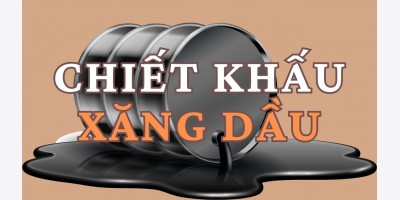Dầu thô giảm giá vì nợ công và căng thẳng quân sá»±
Trong phiên Châu Á sáng nay tại New York, giá dầu Ä‘iá»u chỉnh giảm nhẹ do dá»± báo khủng hoảng nợ Châu Âu sẽ lan rá»™ng và kìm hãm tốc Ä‘á»™ tăng trưởng kinh tế của châu lục này, và thêm vào Ä‘ó là thông tin từ Viện Dầu Khí Mỹ cho biết trữ lượng dầu thô tồn của của nÆ°á»›c này trong tuần trÆ°á»›c Ä‘ã tăng lên.
Các hợp đồng tÆ°Æ¡ng lai giảm sau khi đồng USD mạnh hÆ¡n so vá»›i EUR, làm hạn chế nhu cầu nguyên liệu thô. Thủ tÆ°á»›ng Äức Angela Merkel cho biết đồng EUR Ä‘ang ở trong tình thế đặc biệt nghiêm trá»ng.
Trong khi Ä‘ó, Viện dầu khí Mỹ cho biết trữ lượng dầu tồn của tuần trÆ°á»›c tăng thêm 5,19 triệu thùng lên mức 357,7 triệu thùng, mức tăng lá»›n nhất kể từ tuần kết thúc vào ngày 22/10.
Stephen Schork, chủ tịch của công ty cố vấn Schork Group Inc ở Villanova, Pennsylvania nói rằng thị trÆ°á»ng Ä‘ang quan ngại vá» sá»± lây nan của căn bệnh khủng hoảng nợ của Ireland sang các nÆ°á»›c châu Âu, mà nạn nhân kế tiếp có thể là Bồ Äào Nha và Tây Ban Nha Ä‘ang tiến sát đến nguy cÆ¡ vỡ nợ.
Giá dầu thô WTI giao kỳ hạn tháng 01 mất 28 cent, tức 0,3%, xuống còn 80,97 USD/thùng tại sàn giao dịch New York, và0 lúc 08h12 sáng (giá» Việt Nam), giá dầu là 81,08 USD/thùng. Äóng cá»a phiên hôm qua, giá dầu giảm 49 cent, tức 0,6%, xuống còn 81,25 USD/thùng.
Tuần này, Ireland Ä‘ã Ä‘á» nghị vay má»™t gói cứu trợ tài chính từ Liên minh Châu Âu EU và QÅ©y Tiá»n tệ Quốc tế. Lợi tức trái phiếu các khoản nợ công của Tây Ban Nha và Bồ Äào Nha cÅ©ng Ä‘ã tăng lên do việc giải cứu ngân hàng Irish làm tăng nguy cÆ¡ khủng hoảng leo thang ở các quốc gia phía nam Châu Âu vá»›i khoản thâm hụt ngân sách lá»›n. Lợi tức trái phiếu 10 năm của Tây Ban Nha Ä‘ã vượt mức ká»· lục của Äức trong má»™t thế ká»· qua.
Hôm qua, đồng USD tăng 1,9% tÆ°Æ¡ng Ä‘Æ°Æ¡ng vá»›i 1 EUR đổi được 1,3367 USD. Äây là lần đầu tiên EUR rá»›t xuống dÆ°á»›i 1,34 USD kể từ tháng 09. Äồng bạc xanh cÅ©ng tăng do Bình Nhưỡng và Hàn Quốc nã pháo vào nhau, làm cho nhu cầu vỠđồng tiá»n toàn tăng cao hÆ¡n.
Theo 16 chuyên gia phân tích trong khảo sát Bloomberg, má»™t báo cáo từ Bá»™ Năng Lượng hôm nay khả năng sẽ cho thấy trữ lượng dầu thô tồn tuần trÆ°á»›c giảm 2 triệu thùng từ 357,6 triệu thùng của tuần trÆ°á»›c Ä‘ó.
Theo bản báo cảo từ MasterCard Inc cho thấy nhu cầu xăng của Mỹ giảm 0,9% xuống còn trung bình 9,12 triệu thùng/ngày trong tuần kết thúc vào ngày 19/10, Ä‘ây là mức giảm lần thứ 4 trong 05 tuần qua.
Cuối phiên giao dịch hôm qua tại London, giá dầu thô Brent giao kỳ hạn tháng 01 giảm 71 cent, tức 0,9% xuống còn 83,25 USD/thùng.
Oil Falls on Concern Europe Debt Woes, Korean Tensions Will Hinder Economy
By Margot Habiby and Ben Sharples - Nov 24, 2010 6:56 AM GMT+0700
Oil fell for a fourth day in New York amid speculation that Europe’s debt crisis will spread and crimp economic growth, while an industry-funded report showed U.S. crude inventories gained last week.
Futures declined as the dollar strengthened against the euro, curbing demand for raw materials. German Chancellor Angela Merkel said the euro is in an “exceptionally serious” situation. A report from the American Petroleum Institute showed stockpiles rose 5.19 million barrels to 357.7 million last week, the biggest increase since the week ended Oct. 22
“The market’s concerned about European contagion with Portugal going next and Spain probably being the coup degrace,” said Stephen Schork, president of consultant Schork Group Inc. in Villanova, Pennsylvania.
The January contract slipped as much as 28 cents, or 0.3 percent, to $80.97 a barrel, in electronic trading on the New York Mercantile Exchange, and was at $81.08 at 10:12 a.m. Sydney time. Yesterday, it fell 49 cents, or 0.6 percent, to $81.25. Prices are up 2.2 percent this year.
Ireland this week asked for a financial bailout from the European Union and International Monetary Fund. Yields on Spanish and Portuguese debt rose as the Irish rescue raised the risk of escalating the crisis to southern European nations with large budget deficits. Spain’s 10-year yield spread over German bunds widened to a euro-era record
The dollar gained 1.9 percent to $1.3367 per euro yesterday. It was the first time the euro dropped below $1.34 since September. The U.S. currency also rose as North Korea and South Korea exchanged artillery fire, fueling demand for safer assets.
Oil Supplies
An Energy Department report today will probably show U.S. crude inventories declined 2 million barrels last week from 357.6 million a week earlier, according to the median of 16 analysts in a Bloomberg News survey. The report is scheduled to be released at 10:30 a.m. in Washington.
The Petroleum Institute collects stockpile information on a voluntary basis from operators of refineries, bulk terminals and pipelines. The government requires that reports be filed with the Energy Department for its weekly survey.
U.S. gasoline demand at the pump fell 0.9 percent to average 9.12 million barrels a day in the week ended Nov. 19, MasterCard Inc. reported yesterday in its SpendingPulse report. The decrease was the fourth in five weeks.
Brent crude for January settlement declined 71 cents, or 0.9 percent, to $83.25 a barrel on the London-based ICE Futures Europe exchange yesterday.








